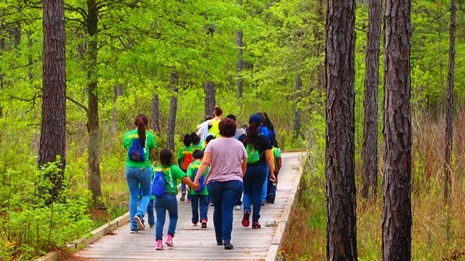Outdoor Education
Preparation:
The course provider will send to the participants a list of materials related to the course topic that they can read in order to prepare for the course. The course provider keeps in touch with the participants and tailors the course according to their specific needs. The course provider offers support if the participants need any information related to accommodation, plane tickets or other details necessary in organising the course.
Course description
This course aims to prepare teachers, educational staff, educational management and parents to become aware of the importance and benefits of using Outdoor Education principles and techniques in their work with students. Participants will learn by practicing experiential learning activities in outdoor contexts: in the forest/park, in the city, on the beach, in the village/farm. The course comprises lots of practical activities that help us discover the beauty and value of nature and of the city and ways to design and implement activities with our students and children. Each session is followed by a reflection activity which requires participants to critically evaluate the techniques and discover what is best to use in their own context.
Methodology:
The methodological techniques include:- Team – Building Sessions;
- Role – Play
- Ice – Breaking and Warm – Up Sessions;
- Energisers
- Demonstrations
- Group Discussions
- Debates
- Drama techniques
- Questioning;
- Goal – Setting sessions;
- Brainstorming;
- Questionnaires
- Becoming aware of the principles and benefits of Outdoor Education and experiential learning
- Understanding the potential for formal/ informal education of different outdoor settings: forest, beach, city, village
- Trying and planning outdoor learning activities in different settings and for different purposes
- Using reflection tools as a means to critically evaluate the usefulness of an activity for your own context
- Becoming familiarized with different elements with a rich potential for learning: natural elements, vegetation, architectural style, historical facts
- Trying practical activities to boost motivation and develop spatial intelligence, relaxation, confidence
- Becoming aware of the importance of parental and community involvement in the education of the students
- Understanding the importance of risk assessment tools and safety measures for different outdoor settings
- Networking with teachers from various European countries
- Improvement of language and communication skills
- Increased capacity to cooperate on international level
Follow-up
Trainees will be given soft and hard copies of all lesson materials, which they can present to their colleagues at their own organizations to generate interest in the strategies learnt during the training course. In addition, a mailing list of participants will be created in order to exchange ideas/experiences. Self-evaluation materials will be provided. At the end of the course the participants will fill in a questionnaire in order to get a detailed feedback for the effectiveness of the training event.
Programme of training activities day-by-day:
Day 1 – MONDAY
- Welcome and registration;
- Team building activities
- Introduction to Outdoor Education: principles and benefits for the students
- Nature as an Educational Tool - principles of experiential learning
- Various outdoor locations and their potential for enhancing team building and life skills
Day 2 – TUESDAY
- Out in the city: practical activities for experiential learning
- Activities to develop spatial intelligence in the city: maps, public transport
- Activities to discover the cultural and historical richness of a place through visiting a historical site
- Discover architecture and style - landmarks of culture
- How to design activities for outdoor education
- How to introduce outdoor activities in the curriculum: Geography, History, Social Sciences
Day 3 – WENDESDAY
- Out in the forest: practical activities for experiential learning
- Activities to identify natural elements and their usefulness
- Activities to develop spatial intelligence in the forest / park
- Creating bonds while tracking
- How to introduce outdoor activities in the curriculum: Geography, Biology, Chemistry, Environmental Education
Day 4 – THURSDAY
- Out on the beach: practical activities for experiential learning
- Activities to promote relaxation and confidence
- Problem-solving games and activities
- The advantages of constructivist/discovery model: Students learn concepts themselves
- Learning from working with natural materials
- The role of teacher in Outdoor Education
Day 5 – FRIDAY
- Safety comes first - Risk assessment and safety measures for different outdoor locations
- Learning through Outdoor Education can be fun and meaningful
- How Outdoor Education helps to develop social and teamwork skills
- Traditional approach vs. Outdoor Education
Days 6/7 – SATURDAY and SUNDAY Workshops and Cultural/Sightseeing Activities
Day 8 – MONDAY
- Workshop: designing and planning outdoor activities
- Involving parents and the local community in outdoor activities
- Training parents to explore nature and spend quality time with their children
- Reflective journals - a tool for students, teachers and families
Day 9 – TUESDAY
- Out in the village: practical activities for experiential learning
- Traditional values that can be taught through a visit to a village
- Cultural variation between rural and urban communities
- The importance of the learning environment in motivating students
Day 10 – WEDNESDAY
- Adapting and using Outdoor Education techniques in your own teaching context
- Formative assessment during outdoor activities: what should be evaluated and how
- Evaluation of the course
- Awarding certificates






